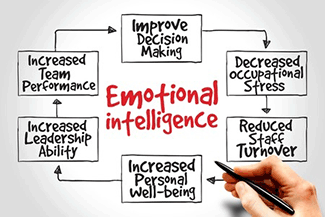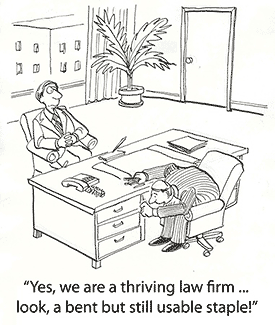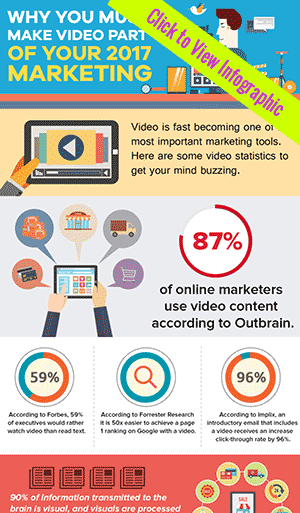Full Article
The Law of Reversal
 The Law of Reversal says: Putting yourself in the situation of the other person enables you to prepare and negotiate more effectively.
The Law of Reversal says: Putting yourself in the situation of the other person enables you to prepare and negotiate more effectively.
Before any negotiation that involves a good deal of money or a large number of details, use the “lawyer’s method” of reverse preparation. This is a great technique that dramatically sharpens your negotiating skills. In law school, student lawyers are often given a case to either prosecute or defend as an exercise. They are then taught to prepare the other lawyer’s case before they begin preparing their own.
You should do the same. Before you negotiate, write down everything that you think may be of concern to the person with whom you are going to be meeting. Writing things down clarifies them and enables you to see possibilities that you might otherwise have overlooked.
A powerful tactic that you can use at the beginning of the negotiation is to open with this question: “Why do you feel we are here and what would you ideally like to accomplish in this discussion?” This question will demonstrate to the other person that you are reasonable and open and interested in achieving a mutually satisfactory result.
from "THE 100 ABSOLUTELY UNBREAKABLE LAWS OF BUSINESS SUCCESS" – Brian Tracy
Don’t Be Afraid to Ask for Help
Being fearful of asking others for things could be your biggest obstacle to success in life and business.
A 12-year-old Steve Jobs needed parts for a project. He found Bill Hewlett’s phone number in the white pages and called him. Steve introduced himself as a middle school student looking for a few parts. Bill laughed at Steve’s request but gave him the parts and a summer job.
When I was 10 years old I had a science project on the oil and gas industry. I needed to call people in the business. I found myself sitting with the phone and the phone book open to a list of names, but fear gripped me and I couldn’t make the calls. However, I really wanted a good grade and finally that desire trumped my fears and I made the calls.
I discovered, as did Steve Jobs, that people were more than willing to help. I got far more information than I needed.
Do you have this fear? If you can shift your mindset and a focus on the good that can happen when they ask others for help, it will open more doors to success than you can imagine.
– By Coach Phil Gilkes
Understanding Why Bad Overpowers Good
The last political campaign season with its negative advertising brought a question to mind: Why do negative ads work and what are the implications for you and your business?
We are wired to pay more attention to bad outcomes and respond far less strongly to good. Evolution meant you had to survive to reproduce. Therefore, we have developed a clear neural bias toward paying more attention to something bad and remembering it longer. A related principle is that we fear loss of something more than appreciate having it.
But in practical terms, how can you use this knowledge?
First, knowing the human bias toward negativism will help you re-frame situations and improve results. By understanding how others interpret and react to events gives us better insights in how to more effectively work with them, influence them, and persuade them.
Second, review your employee rewards programs knowing what you know now. Are they effective at raising morale? How might you make them more effective and rewarding?
Third, create better ads. Understanding our psychological makeup helps you improve your advertising through what you say just before you present your product, service, or argument.
The Importance of Emotional Intelligence for Entrepreneurs
 Emotional Intelligence (EI) is not a topic that an entrepreneur focuses on. However, when other factors are equal, why do some ventures struggle to survive while others thrive? It may be due to the entrepreneurs’ soft skills or the emotional skills.
Emotional Intelligence (EI) is not a topic that an entrepreneur focuses on. However, when other factors are equal, why do some ventures struggle to survive while others thrive? It may be due to the entrepreneurs’ soft skills or the emotional skills.
Entrepreneurs who are emotionally intelligent are adept at maintaining good morale in the workplace. They have good relations with customers and other stakeholders. Smart employers often value EI over IQ because:
- Employees (with high EI) are more likely to stay calm under pressure,
- Employees know how to resolve conflict effectively,
- Employees are empathetic to their team members and react accordingly,
- Employees lead by example, and
- Employees tend to make more thoughtful business decisions.
Does your EI need a boost? Here are four traits fundamental to EI:
- Self-awareness. To develop self-awareness, start by noticing how you feel in a variety of situations.
- Self-regulation. Think of better ways of responding to emotional cues that lead to happier outcomes.
- Empathy. While sympathy refers to feeling for others, empathy is an emotion that feels with others.
- Social skills. Good inter-personal skills stem from controlling one's own emotions and being able to tune into how others feel.
When you increase your company's EI, you improve its productivity, lower turnover and increase your bottom line. It's easy and fast if you have the skills to assess the problem areas and the knowledge and tools to change how people interact as manager and coworkers. If you'd like to move your EI from red to green, give me a call right now and see a change in your business take place in just a couple of days.
2017 Canadian Business Trends: Making Your Company More Environmentally-Friendly and Sustainable
With every change that takes place in Canadian government, policies shift and new trends come into play. Whether you agree with them or not, there’s money to be saved (and made!) by implementing environmentally-friendly operations and following through with them.
Some of the better-known methods include:
- Switching to solar power or other green energy strategies, such as converting waste to cheap energy.
- Sourcing raw materials from local suppliers. This reduces fossil fuel consumption and boosts the local economy.
- Choosing recycled materials where possible. This lowers the pressure on landfills, saves water, and can also help you market to environmentally sensitive consumers.
- Using less packaging materials or switching to bio-degradable ones.
- Making products repairable.
This trend toward more environmental sustainability will have other impacts on 2017. Expect to see a greater focus on mindfulness. This includes maintaining a high performance, collaborative culture.
Further, Corporate Social Responsibility programs are becoming more serious and providing opportunities for companies to benefit their communities. We also expect to see corporate buying programs more seriously focus on making sustainable purchases.
Finally, Increased workforce competencies will enable employers to avoid duplication and over-staffing – a factor that affects both efficiencies and profitability.
Why The Other Person Got the Better Deal - The Law of Power
 The Law of Power says: The person with the greater power, real or imagined, will get the better deal in any negotiation.
The Law of Power says: The person with the greater power, real or imagined, will get the better deal in any negotiation.
Your ability to recognize both your power and the power of the other person is critical to success in negotiating. Often you have more power than you know and the other party less.
- The first corollary of the Law of Power says: “No one will negotiate with you unless they feel you have the power to help them or hurt them in some way.” You must have something the other person wants, or be able to withhold something he wants.
- The second corollary of this law says: “Power is a matter of perception; it is in the eye of the beholder.” You can often create the perception of power with boldness and creativity.
Of the three keys to negotiating – power, preparation, and timing – power is often the most important.
Further, there are 10 different types of power you can develop and use to influence and persuade the other party in any negotiation. What are these levers of power and how can you use them?
- from "THE 100 ABSOLUTELY UNBREAKABLE LAWS OF BUSINESS SUCCESS" – Brian Tracy
Dealing with Difficult People
 Is a co-worker difficult? You need your team working toward a positive goal, so confront the problem. Here are some practical steps:
Is a co-worker difficult? You need your team working toward a positive goal, so confront the problem. Here are some practical steps:
- Find Out If It’s Just You. Look for signs that indicate several people have the same concern.
- Control the Narrative. Assume control of the narrative by identifying and proposing solutions or improvements.
- Have a Difficult Conversation. Ask to have an honest discussion about an issue or a problem you see. This will alert the co-worker to the importance of the situation without making him or her defensive.
- Address the Problem, Not the Person. Avoid accusing or blaming. Approach the issue indirectly and follow it up with a shift toward a solution.
- Stand Firm. Many people have “bully” tendencies. If you stand up for yourself, politely and firmly, and the problem is very likely to go away.
- Walk a Mile in Their Shoes. Remember that often people are difficult because they are dealing with problems of their own.
- Choose Your Battles. When your situation is temporary or doesn’t affect your work, you might find it easier to avoid associating with the difficult person or to simply grit your teeth until it’s over.
Why The Future of Our Economy Is Small Business
 Healthy, growing small businesses are the life blood of our economy. Yet many are just trudging along. Most business owners spend more time in their business than they do with their families.
Healthy, growing small businesses are the life blood of our economy. Yet many are just trudging along. Most business owners spend more time in their business than they do with their families.
Why? It’s because these founders are business operators rather than business owners. They believe they are the only person who can do the job right or that it would take too much time to train someone else.
To change this, you can use the “Power of Leverage.” There are seven leverage strategies that you can use:
- Other People’s Energy
- Other People’s Knowledge
- Other People’s Money
- Other People’s Successes
- Other People’s Failures
- Other People’s Ideas
- Other People’s Contacts
When we work with businesses hoping to grow, only 20 percent of the constraint is technical – 80 percent is the psychology, the mindset, the fears, worries, and concerns of the owner.
As business success strategists, we have dozens of proven strategies to move you to the level of success you want. Importantly, we work alongside you to help you with the mind shift needed to move from operator to business owner.
Marketing Automation: The Key to Growth
 Marketing activities are labor intensive and time-consuming. Automated marketing strategies give you the tools to grow without significant outlays of cash and already scarce resources.
Marketing activities are labor intensive and time-consuming. Automated marketing strategies give you the tools to grow without significant outlays of cash and already scarce resources.
The customer relationship progresses through many tiny steps. Automated marketing lets you guide interested leads through the initial research, product inquiry, and purchase phases of the sales funnel in a way that isn’t pushy or overbearing. It also helps you grow an email list you can use to build relationships with clients and potential clients and mine for future business. Here’s what marketing automation can do:
- Lead Acquisition. This includes SEO tools, automated content posting. and social profile management.
- Prospect Evaluation and Consideration of Options. Capture prospect information via opt-in for emails or newsletters, trigger emails based on behavior, and automate email campaigns.
- Decision-Making, Cultivation, and Profiling. Automate emails through welcoming and onboarding, send reminders, promote specials, collect user information to improve targeting, manage loyalty program and publish blogs and newsletters.
- Termination and Win-Back. Conduct data collection and exit surveys as well as send automated win-back emails at six and 12-month intervals.
Among the cloud-based marketing automation services available are Marketing Essentials, Leadsius, InTouch, and ActiveCampaign.








